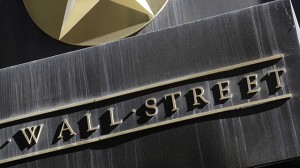For many years there were some economists who argued that their discipline shouldn’t worry about inequality. Economists, they said, should focus on efficiency and growth, and leave the distribution up to the political world. But a research brief released on Tuesday by the Wall Street ratings agency Standard and Poor’s concludes that growth versus equality is a false choice. The authors argue that while some inequality may be desirable in a market economy — it spurs entrepreneurship and innovation — when those at the top take too large a share of a nation’s output, they tend to bank it rather than spend it. This ultimately hurts consumer demand and slows down economic growth. They also note that “higher levels of income inequality increase political pressures, discouraging trade, investment, and hiring.”
The point of the brief that made headlines this week is this: “Our review of the data, as well as a wealth of research on this matter, leads us to conclude that the current level of income inequality in the US is dampening GDP growth, at a time when the world’s biggest economy is struggling to recover from the Great Recession.”
But S&P makes another crucially important argument: Not only does high inequality slow growth over the long-term, but it also makes an economy more prone to a boom-and-bust cycle — it leaves us vulnerable to shocks.
“As income inequality increased before the crisis, less affluent households took on more and more debt to keep up–or, in this case, catch up–with the Joneses,” the analysts write. “Further, when home prices climbed, these households were willing to borrow against their newfound equity–and financial institutions were increasingly willing to help them do so, despite slow income growth. A number of economists have pointed to ways in which this trend may have harmed the US economy.”
After several decades of stagnant wages, most Americans have little or no cushion to get them through a temporary setback. According to a 2013 survey of 1,000 US households by Bankrate.com, 81 percent of American families don’t have enough emergency savings to pay the bills for six months. American households compensated for flat wages first by transitioning from one-earner to two-earners — millions of women joined the workforce. Then we started borrowing. When the recession hit, we were tapped out and deeply in debt. With no economic security — no cushion — we stopped spending money on anything but the essentials, and that contributed to the “output-gap” that persists to this day.
The S&P analysts take a cautious, Wall Street-friendly approach to possible solutions — no “soak the rich” proposals are offered by the ratings agency. They endorse raising the minimum wage but caution against too much government intervention in the economy. They stress the importance of education for decreasing inequality over the long term.
But they do urge lawmakers to do something to address the issue. While stopping short of recommending specific policies to tackle the problem, the authors look favorably at the idea of taxing investment income like ordinary wages and write about a proposal in the California legislature to tie companies’ tax rates to their ratio of CEO-to-worker pay. “In addition to strengthening the quality of economic expansions,” they write, “bringing levels of income inequality under control would improve US economic resilience in the face of potential risks to growth. From a consumer perspective, benefits would extend across income levels, boosting purchasing power among those in the middle and lower levels of the pay scale–while the richest Americans would enjoy increased spending power in a sustained economic expansion.”
You can read the entire research brief at Standard and Poor’s.



